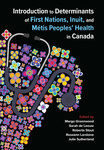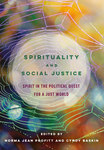We don’t actively support Internet Explorer
It appears that you are using Internet Explorer, which has been discontinued by Microsoft. Support has ended for versions older than 11, and as a result you may face security issues and other problems when using it.
We recommend upgrading to a newer browser such as Firefox, Google Chrome, or Edge for a much better experience across the web.
While this site may work with Explorer, we are not testing and verifying it, so you may run into some trouble or strange looking things.
Overview
Holistic Healing links together a wide range of progressive theories, research and practices from the exciting field of holistic studies to create an alternative paradigm of healing and social change. This practical and insightful guide offers uniquely comparative and integrated understanding of both ancient and modern Indigenous, Eastern, and Western practices, including traditional healing practices from around the world, meditative practices, bodywork, energy medicine, expressive arts, eco-psychology, transpersonal psychology, Ayurveda, Indigenous well-being, naturopathy, homeopathy, and traditional Chinese medicine.
Over 30 practitioners and scholars from diverse fields of study contribute to our understanding of individual, family, community, national, and global holistic healing in chapters addressing critical issues such as colonization, human rights, the environment, peace and conflict, and equity and inclusion. This collection is a timely and practical resource for post-secondary students of social work, psychology, Indigenous studies, health and nutrition, holistic healing, and sociology and is also a great resource for professional practitioners and those interested in the field of holistic studies.
Visit the official Holistic Healing website.
Table of Contents
Section I: An Overview of Holistic Healing Chapter 1: Holistic Healing: A Growing Transformative Field, Peter A. Dunn Chapter 2: Indigenous/Anishinaabek Wholistic Healing, Kathy Absolon, with Jo-Anne Absolon and Lana Brasher Chapter 3: Traditional Holistic Healing Practices from Around the World, Roy Moodley and Huma Shireen Chapter 4: Western Holistic Counselling, Doreen Maller, Jason Butler, Gary Hoeber, and Shari Derksen
Section II: Modules of Healing Chapter 5: Contemplative Practices, Timothy Gordon Chapter 6: Bodywork: Reconnecting Body, Mind, Emotions, and Spirit, Linda Turner Chapter 7: A Peek into the World of Energy Medicine, Roxana Roshon Chapter 8: Expressive Arts: Instruments for Individual and Community Change, Nancy Riedel Bowers and Olena Helen Darewych Chapter 9: Transpersonal Healing, Harris Friedman Chapter 10: Ecopsychology: Theory, Practice, and Reciprocity in Healing with Nature, Michelle Brans Chapter 11: Holistic Health and Nutrition 11.1 Ayurveda Health, Neelam Toprani 11.2 Indigenous Wholistic Well Being and Healing, Banakonda Kennedy-Kish Bell 11.3 Naturopathy, Homeopathy, and Natural Medicine, Iva Lloyd 11.4 Traditional Chinese Medicine, Dylan Kirk and Enwei Li Chapter 12: Global, National, and Community Healing, Nathan Funk and Jennifer Ball
Section III: Transformation, Integration, and Conclusions
Chapter 13: Holistic Interventions for Dealing with Human Service Worker Stress and Burnout, Meg Jordan Chapter 14: Examples of Innovative Individual, Organizational, and National Holistic Healing>
14.1 Body as Home: A Critical Somatic Approach to Working with Homeless Youth, Rae Johnson 14.2 Ganohkwasra Family Assault Support Services, Sandra Montour and Julia Bomberry 14.3 Wellwood, K. Jane George and Norma Frankoff 14.4 Truth and Reconciliation Commission and Healing, Brian Rice Chapter 15: Transforming University Education, Neal Klein and Jan Wall Chapter 16: Integration and Conclusions, Peter A. Dunn




